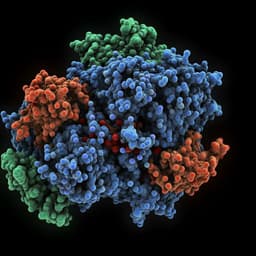
Medicine and Health
An intranasal influenza virus-vectored vaccine prevents SARS-CoV-2 replication in respiratory tissues of mice and hamsters
S. Deng, Y. Liu, et al.
This groundbreaking study by Shaofeng Deng and colleagues introduces an intranasal vaccine, DelNS1-RBD4N-DAF, that not only induced strong immune responses in animal models but also effectively prevented SARS-CoV-2 replication in respiratory tissues, outperforming traditional intramuscular vaccines. This promising LAIV could change the game in controlling COVID-19 transmission.
Related Publications
Explore these studies to deepen your understanding of the subject.







